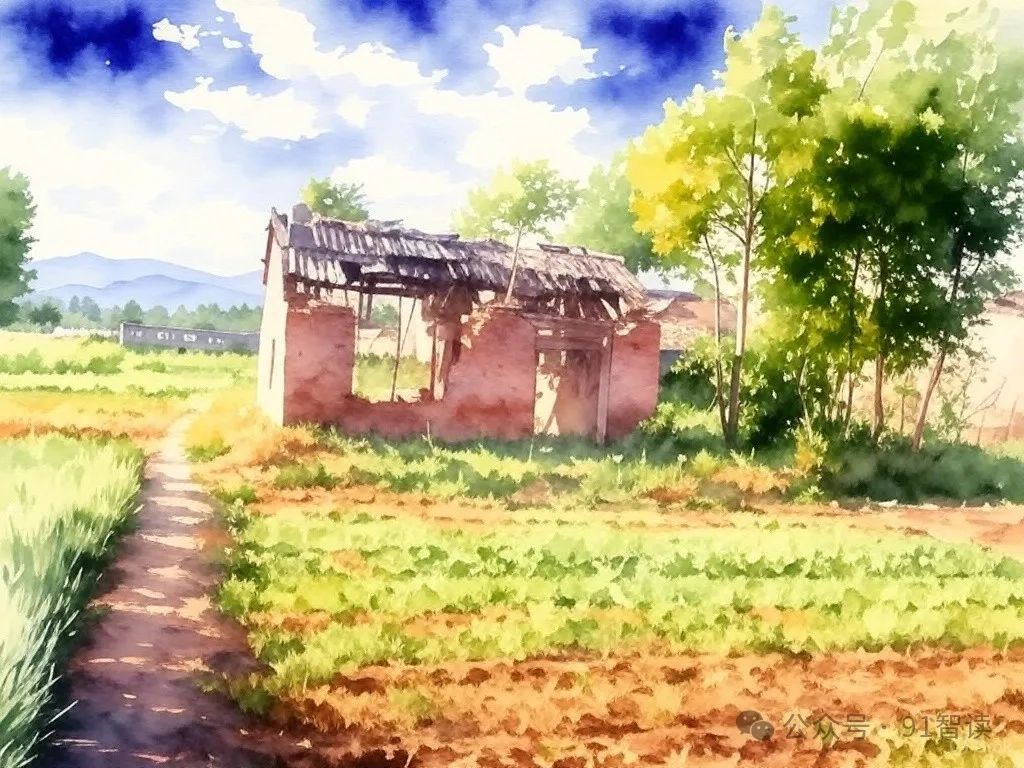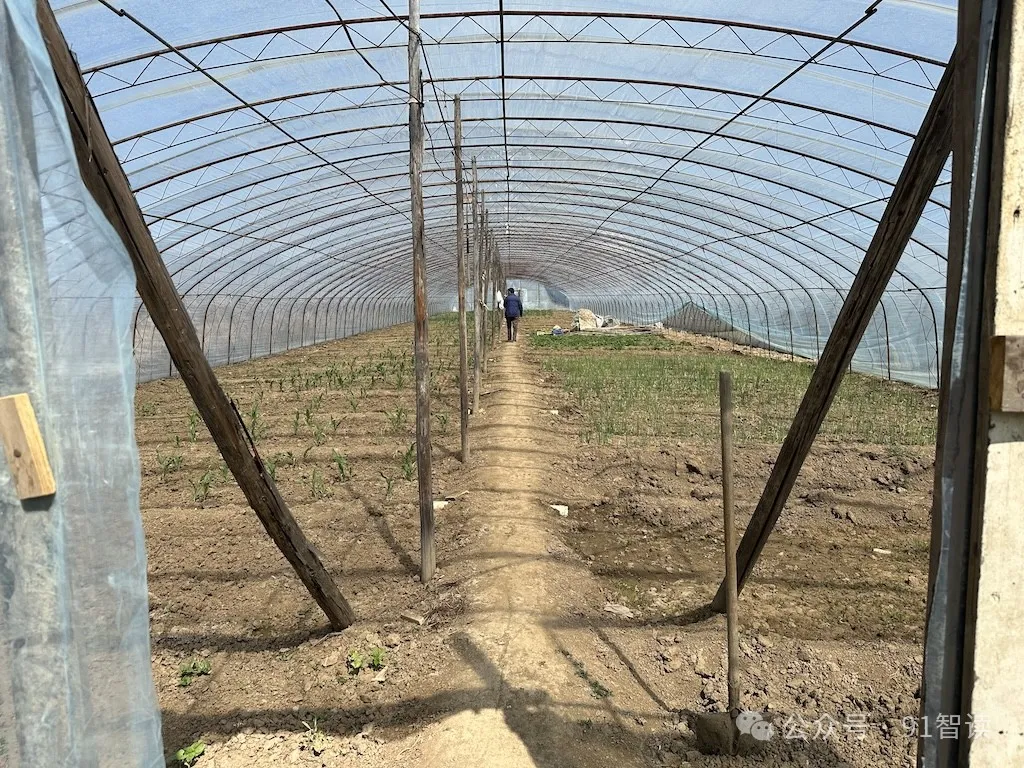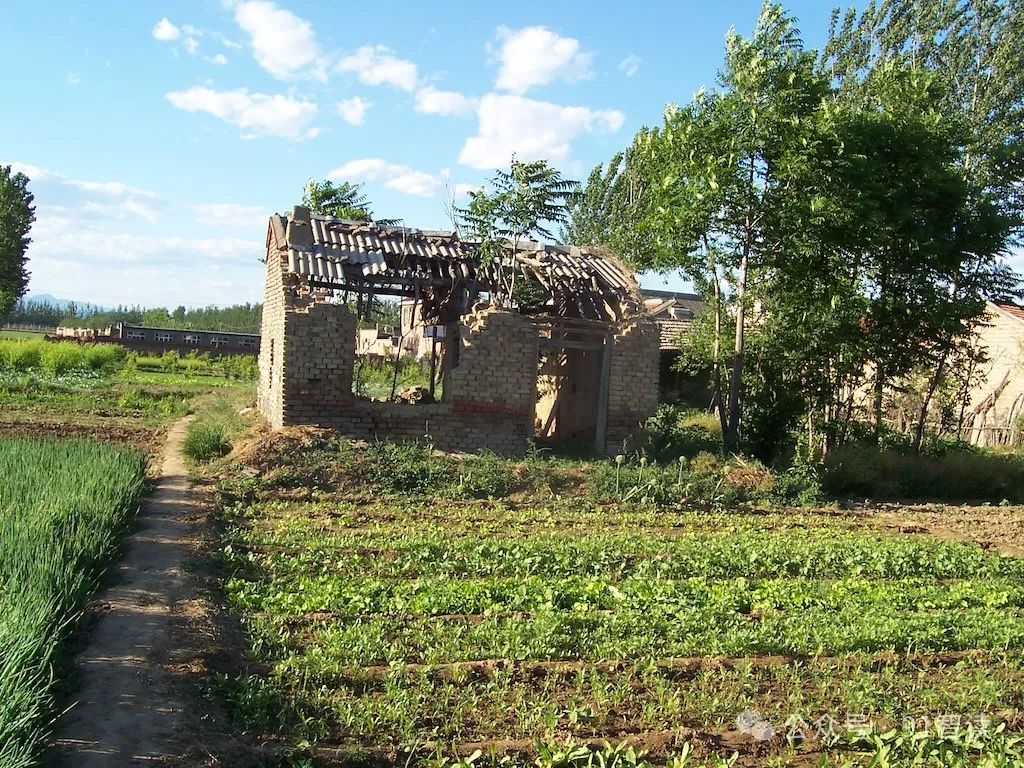My Vegetable Garden Plan

In the early morning, my parents and I stand in front of a newly rented vegetable plot. Not far away are residential buildings of varying heights, yet this place feels like a hidden paradise. Yesterday, we discovered it in a nearby village—a piece of farmland that immediately caught our attention.
This is the villagers’ subsistence farmland, with several vegetable greenhouses. Walking into the yard, instead of the expected earthy smell, we’re greeted by the scent of various animal manure. The yard isn’t large, but it houses quite a few animals, including sheep pens, chicken coops, and ducks running around on the ground.
The villagers warmly welcomed us, pointing to rows of lush green seedlings, saying: “This land is very fertile, seeds sprout as soon as you scatter them!” My mother squatted down to feel the soil and smiled: “This land is good, growing vegetables will definitely be easy.” My father stood beside her, calculating how to make the best use of this plot, his eyes full of anticipation.
Renting this piece of land isn’t just about growing vegetables; it’s about cultivating a long-lost sentiment—love for the land and control over our lives.

Memories of the Vegetable Garden

Taken in 2004, a corner of the vegetable garden
Actually, this isn’t our first experience with the land. For exactly 20 years, from 1991 to 2011, our family contracted a vegetable garden in the village. That was my childhood and my parents’ years of struggle. They supported my brother and me through school with that plot of land, and our family’s daily necessities depended entirely on those rows of vegetables. For me, the vegetable garden wasn’t just a guarantee of food on the table but a playground for growth—eating tomatoes and cucumbers like fruits in summer, harvesting Chinese cabbage in early winter; those days are still unforgettable. Later, demolition turned that land into a memory, and in recent years, we could only grow a few vegetables in an unplanned area near our residential community. Now, even the land near the community is going to be turned into a central park, and the villagers can no longer farm there either.
This time, while strolling in a nearby village, my mother immediately took a liking to this plot of reserved land. The land has a greenhouse structure, built by the family themselves, with a minimum rental period of three years. We chatted, paid the deposit and first year’s rent, and just like that, it was settled.
Why Rent This Land?
When asked about the reason, the most direct answer is my parents’ love for the land. I feel the same way; that sentiment is already ingrained in my bones. During the 20 years of managing the vegetable garden, land wasn’t just a source of livelihood but the root of our family. Even though we later lost the garden, the satisfaction of growing vegetables with our own hands and eating the fruits of our labor remained in our hearts.
Moreover, food safety issues are troubling nowadays. Merchants find various ways to cheat and deceive, and while people complain a lot, few take action. My father often says: “Food that you grow yourself is the most reassuring.” Renting this plot of land isn’t just about having fresh vegetables to eat; it’s about telling ourselves through action: Rather than complaining about the status quo, it’s better to make a change, even if it’s just a small beginning, which can help us regain control over our lives.
Small Garden, Big Plans
Next, we plan to manage this small garden well, growing seasonally appropriate vegetables that we commonly eat at home. We’ll plant spinach in spring, try strawberries in summer, and I’m not sure if watermelons will work—I’ll have to ask my dad, the “vegetable expert.” Then there are staples like lettuce, chives, and tomatoes, which are both convenient and fresh. Standing at the edge of the field, I can already imagine various scenes of harvest. 😁
Growing vegetables isn’t just physical labor; it also requires intelligence. When to water, what fertilizer to use if not chemical fertilizers, how to deal with pests—every step needs consideration. Isn’t this also wisdom in life? For me, this vegetable garden isn’t just a source of vegetables but a place to connect with nature and family.
What’s Next
The story of this piece of land has just begun, and I will continue to share updates about the garden. My father is particularly experienced in growing vegetables; he adopts different planting and management methods for different vegetables, and knows how to make vegetables both attractive and nutritious. For example, how to build supports for tomatoes to yield more fruit? How to cut chives without damaging the roots? We will gradually organize these experiences and share them with everyone. Of course, there will also be lessons from failures—nothing in life goes perfectly smoothly, and setbacks are normal.
Life isn’t just about daily necessities and the routine of work; more contact with nature and the land, and the insights gained from personal labor are more likely to touch people’s hearts.
👇Scan the QR code with WeChat to follow “91WiseRead” for daily updates and growth together.

👇Welcome to add me as a WeChat friend to discuss growth stories together.
